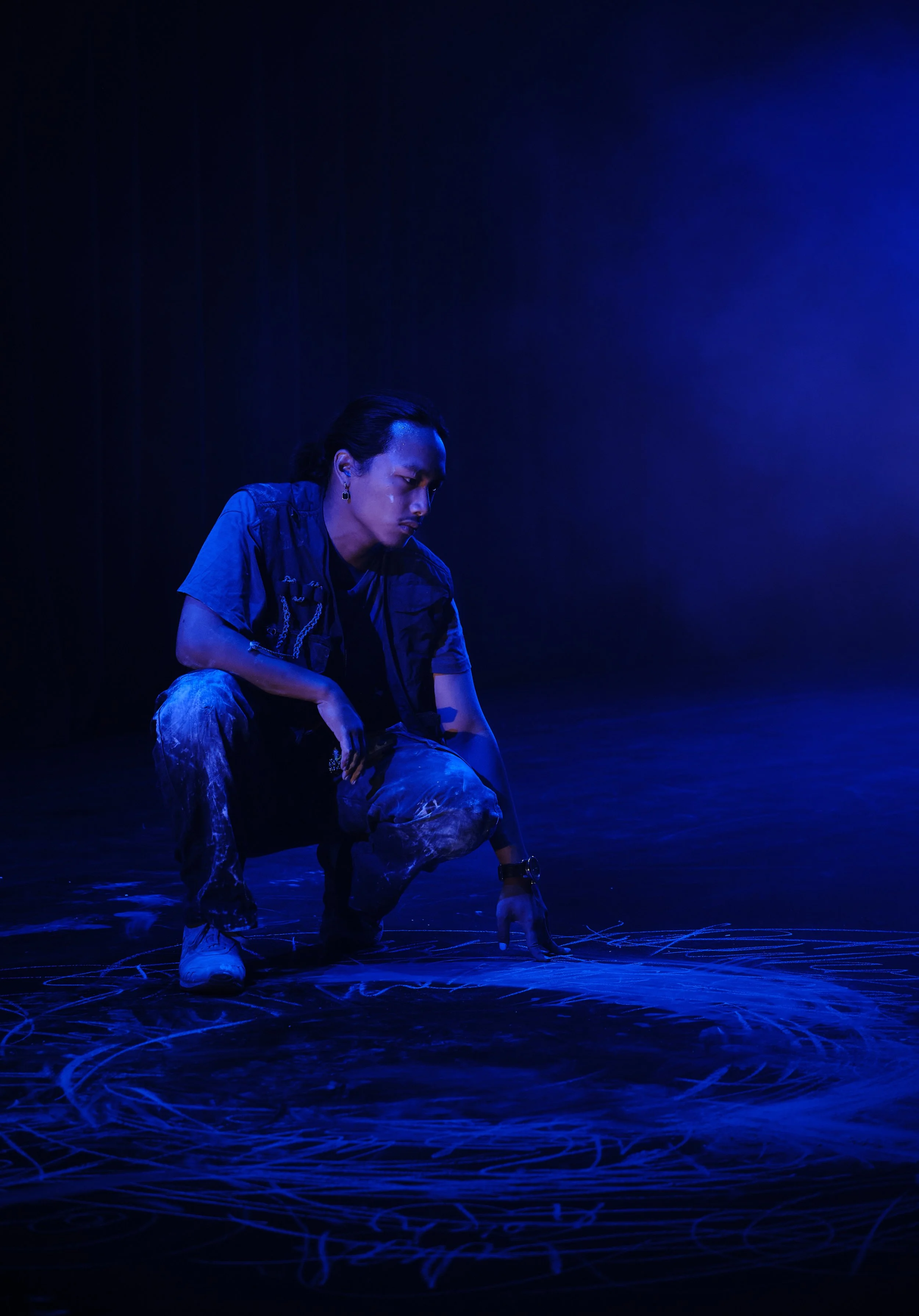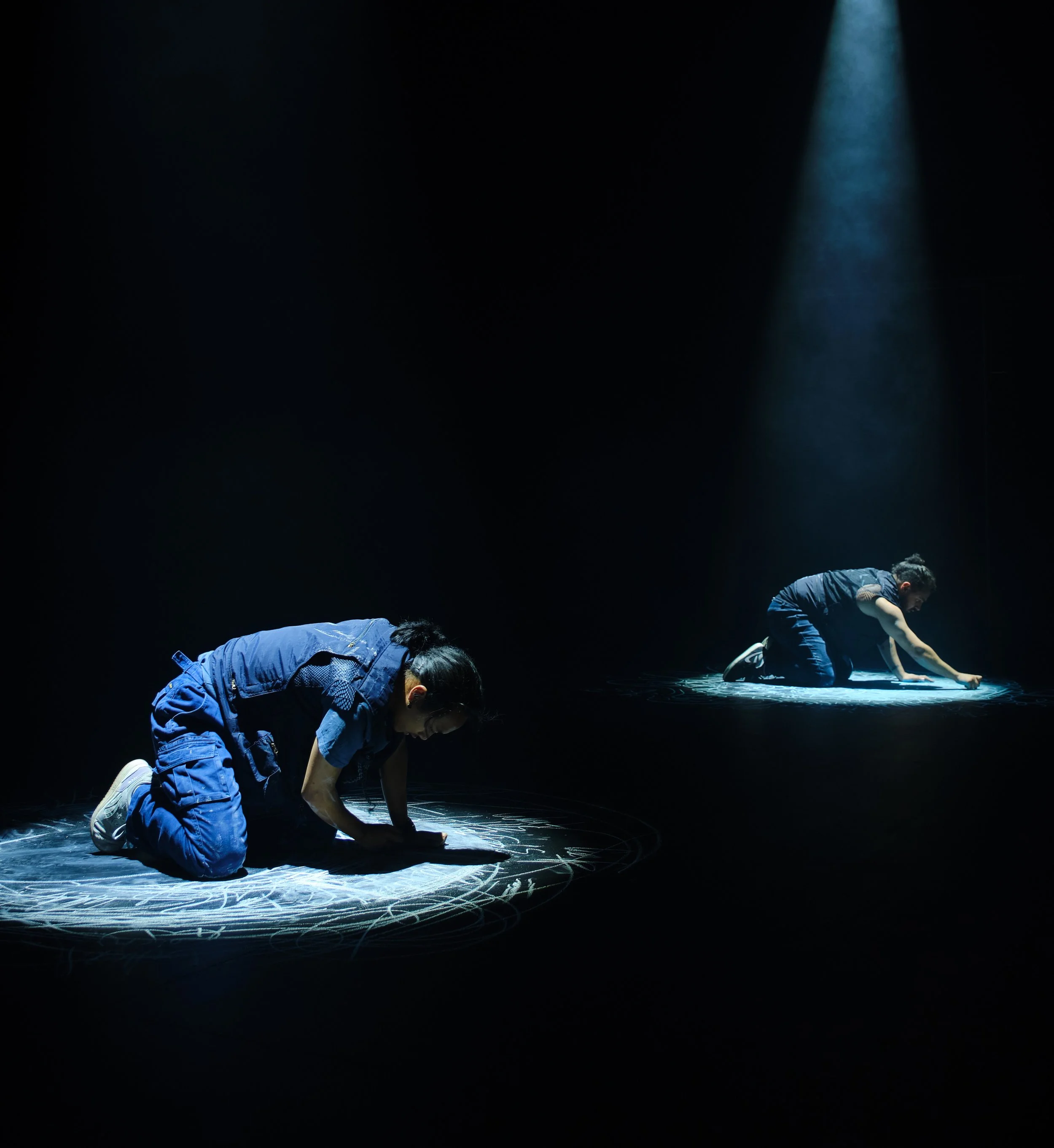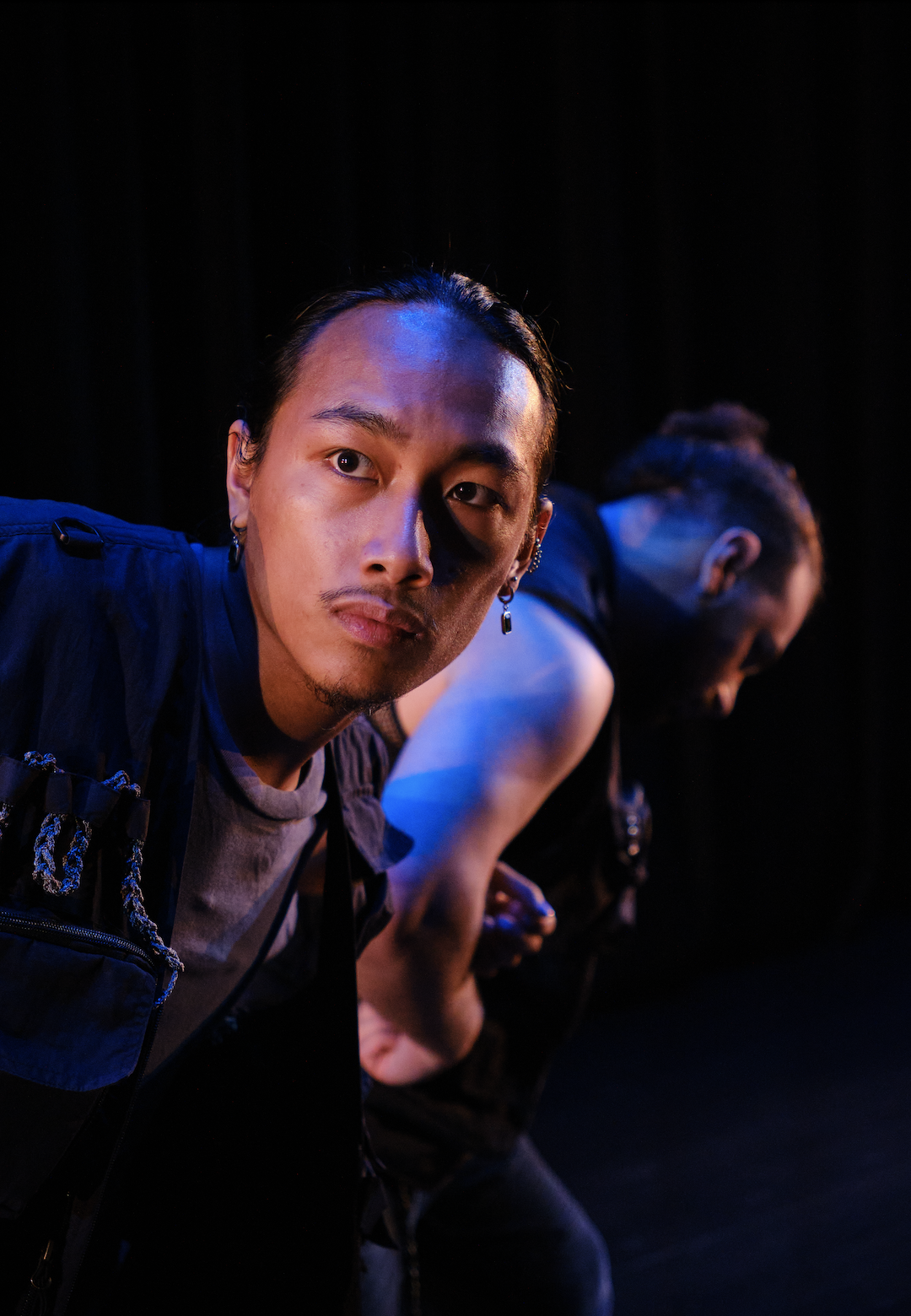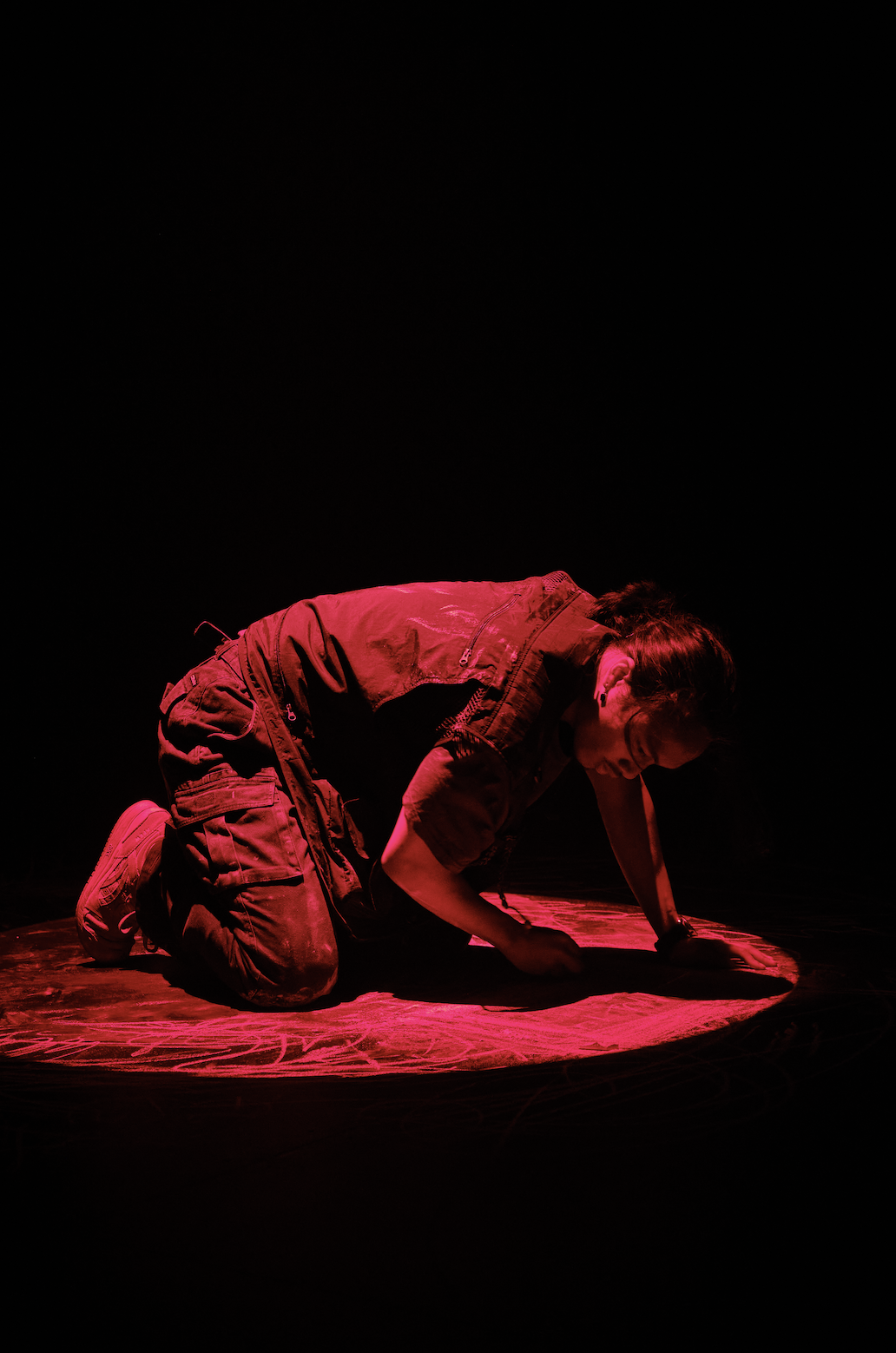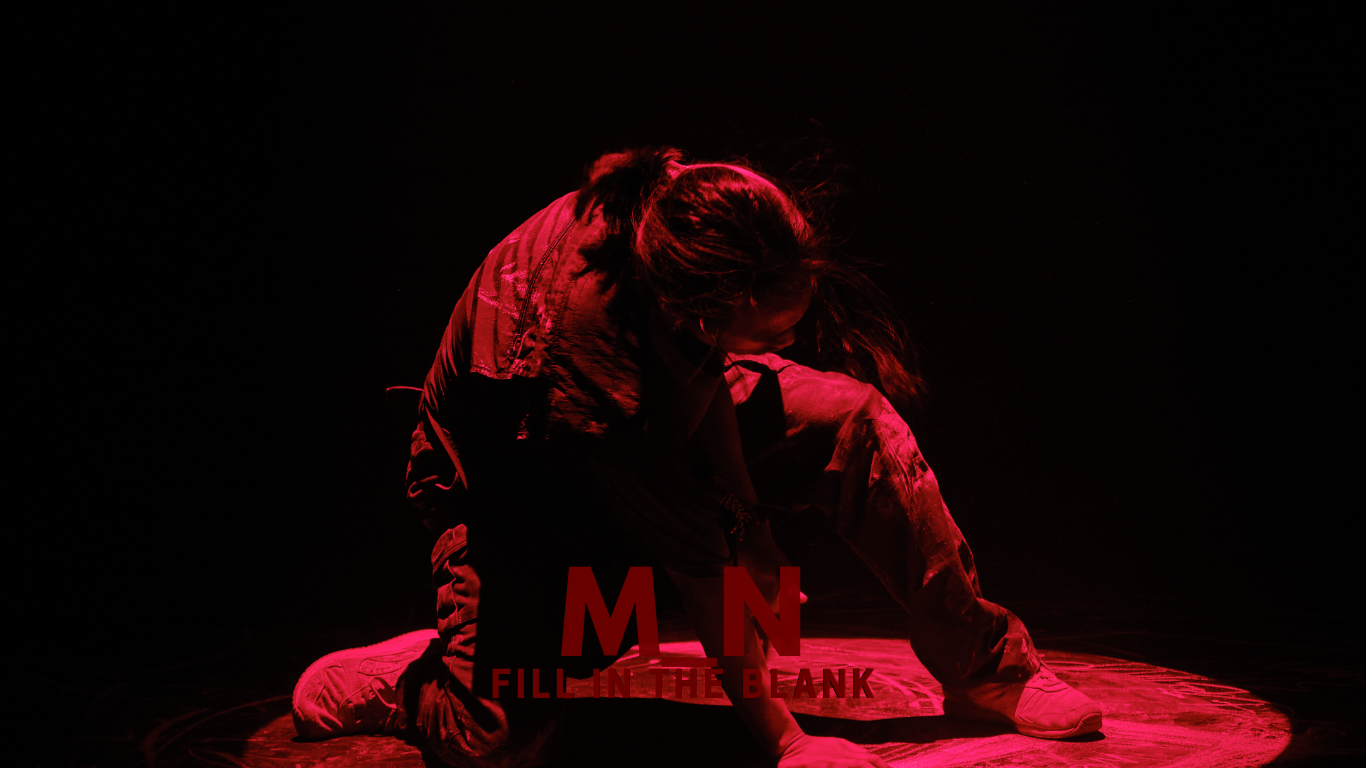
Carmen Yih speaks as eloquently as she dances. In her independent street-dance theatre production, she poses a provocative question: What does it mean to be a man or more specifically, a M_N? Carmen invites us to fill in the blanks as the connection between hypermasculine rhetoric and youth mental health becomes more apparent. The young Chinese-Australian choreographer has collaborated with the emerging street dance artists Giuliano ‘Gino’ Hammal and Kihmo Quintela. Together, they are translating their lived experiences into movement, using street dance to explore the complex stigmas surrounding emotional and physical expression among young men.
M_N was inspired by Carmen’s concern over the underrepresentation of healthy male friendships in most forms of media—a gap that has significantly impacted youth mental health. Both featured performers, Gino and Kihmo, found dance as a way to redefine what it means to be a man. The raw, unfiltered freestyle street dance, set to an original soundtrack by composers April Guest and Mq Iser Smith, tells the story of two young men searching for their identity under the pressure of current standards of masculinity. New York-based musician and activist Samora Pinderhughes lent the rights to his song ‘Masculinity’ for the performance. His album Grief was a constant companion for Carmen. The soundtrack also features work from Queensland-based Krump music producer Gorilla Beatz.
Gino, an emerging curator and member of Burncity Krump and Orphanz, discovered a deep physical and emotional connection to movement during the Covid lockdowns. This discovery rekindled his childhood friendship with fellow M_N lead artist Kihmo. Kihmo, an emerging movement artist, works across various forms of street dance and choreography, with a background in hip-hop, martial arts, and contemporary dance. His style is marked by sensitivity and beauty. When Gino and Kihmo dance together, their interactions reflect an honesty and trust that only decades of friendship can create. This bond is at the heart of M_N.
Krump, originated in South Central, LA in the early 2000s and has a thriving local scene in Naarm explains Carmen. Being a Waacker herself, she began learning about the Naarm Krump community in 2023. She was affirmed by the freedom it offers to express a full spectrum of emotions in a vulnerable space. “You’re encouraged to let your heart out, and this wonderful support network is there, vocally cheering you on. We make a lot of noise—hype is one of the fundamental components of the culture. There’s something inherently therapeutic about the style because in Krump, there’s a lot of tension and release. Many mentors in the community have said that without Krump, they might have turned to violence. Krump marked a turning point for them.”
Amid overdue conversations about masculinity, Carmen reflected on how discussions of both positive and toxic masculinity can send mixed signals to impressionable youth. She spoke with Gino and Kihmo, both as friends and about the pressures they face—”It’s very much like a two-sided coin of shared patriarchal experiences. Unpacking what masculinity entails can be a lonely and confronting experience. With little open dialogue, dance has filled that void, erasing the stigma around seeking help."
Carmen, Gino, and Kihmo collaborated with a local high school and men’s health communities in Melbourne’s West, primarily in St Albans—a place that holds deep significance for Gino and Kihmo. It’s where they grew up, attended school together, and later reconnected. Through their workshops, they are introducing dance as a way for young men to express emotions. The residency reinforces this effort. “They can take it or leave it; it’s about giving them the tools to do so,” Carmen explains. She recalls seeing school programs about masculinity surface in Victoria, only to hear comments that these initiatives fail to address the root of the problem—that they simply apply a label. “You need to change young men’s perception of masculinity, not just frame it as right or wrong, but genuinely believe that a positive and open view of masculinity is healthier.”
After reading Chanel Contos’ Consent Laid Bare, I couldn’t help but draw a comparison between the book and the performance, where education is crucial for boys and men alike. Both resources are accessible to all audiences and ages. They aim to equip people with the tools needed to engage in progressive conversations, challenge harmful behaviours, and educate the general public—especially young people—about the dangers of toxic gender constructs. It’s inspiring to see inequalities being addressed at a grassroots level, and Carmen is playing her part in this reform through dance. Change is in motion, and at last, generational thinking is being disrupted.
Carmen hopes that people will take a moment to reflect. She wants them to realise that dance is for everyone—it’s not gender-specific. “Jams happen every night, free and held in public spaces. Anyone can join in or simply watch. Some international dancers may not speak English, but there’s no need for a common language. We all cheer; we all share that energy and that longing for togetherness.” I’m not a dancer myself, but Carmen’s passion for dance extends to anyone who is open to embracing it
M_N was performed at the Bowery Theatre and St Albans Community Centre earlier this year (2024).
Written by Maeve Sullivan
Image Credits Studio Monochrome
